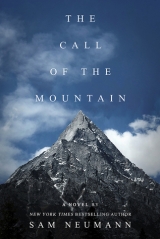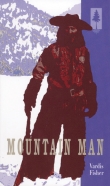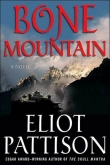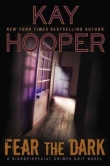
Текст книги "The Call of the Mountain"
Автор книги: Sam Neumann
Жанр:
Триллеры
сообщить о нарушении
Текущая страница: 5 (всего у книги 16 страниц)
17
“I saw you and Vince talking,” she told me on the way home. She drove, and I sat low in the passenger seat. It was past 1 a.m.
“Yes. Talking about work.”
“He likes to check up from time to time.”
“He was just being polite,” I said.
She nodded without taking her eyes off the road.
“Do you know anything about his business?” I asked. “The freight business?”
“A little,” she said. “A few of my friends have driven for him. Or currently do.” Her eyes remained fixed on the road.
“What’s the story?”
“How do you mean?”
“Well, is it a good gig? Seems like it pays well.”
She thought about it. “It’s good work, from what I know. I’d advise you to accept the job if it’s offered.”
I nodded. “See, I’m not sure if that’s what’s happening or not. But I might look into it more. I’m not sure how many days a week I can spend working in a bar.”
She nodded. “I understand.”
“So, you never completely told me what you do for work,” I said. “Something in a restaurant.”
“I wait tables,” she said. “I shared this with you.”
“I know. But you don’t ever seem to be working.”
She inhaled and scowled in my direction.
“No offense or anything,” I said. “I don’t mean it like that. I’m just trying to figure it out. Does anyone work up here?”
She looked back at the road. “Of course. It’s true, I only work part time. I’ve been blessed with savings and minimal expenses, so I don’t have to work as much as some. It leaves me time for other projects.”
“Painting?” I asked. Half of her bedroom was filled with stretched canvas. Some finished paintings, some half-done or abandoned, others waiting to be touched. It was her expression, she said. Abstract stuff, mostly, but not awful.
She nodded. “Among other things. There’s always another realm to be explored. I’d rather explore than work.”
So would I, I thought. I mentally formed a sentence about the luxury of replacing work with painting and singing, but didn’t say it out loud.
We reached my apartment and entered the front door. The move-in was still incomplete—the walls were bare and things were stuffed in certain corners—but it was coming together. I lay down on my bed and looked at the ceiling. Suzanne kicked her shoes off and positioned herself beside me, also on her back looking above.
“What is it you seek, Julian?” she asked. I still hadn’t gotten used to the way she spoke.
I inhaled. “That’s a tough question, Suzanne.”
“And why here? Why this state, this place, above all others? You realized you must leave the life you had. But you could have gone anywhere.”
“Yeah. It could’ve been anywhere.”
“But it wasn’t.”
“No, it wasn’t.”
“And why?”
I thought for a moment. The apartment was silent.
“When I was a kid, my parents got these magazines, and in one of them there was an ad for Colorado. From the tourism department or something. It was basically just a picture of the mountains, but it stuck with me. The Rockies, all covered in snow. Can’t really put my finger on why. But I had to see it.”
“The mountains,” she said, as if understanding perfectly. “The mountains called to you.”
“I guess.”
“Their spirit. The mountains have a spirit that is unlike the plains or the ocean. Their spirit is different. And it called to you.”
“I guess it did.”
She turned to her side, propped up on one elbow, and faced me.
“I’ve wondered, too, what brought you here,” she said. She touched my chest with one finger. “Not to Colorado, specifically. But to Boulder, and to the brewery that night, and to the mountains thereafter. What brought you to me.”
“And?”
“And what?”
“And what did you decide?”
“Oh,” she said, “there’s no decision. I can’t understand, fully. We can’t understand these things any better than we can understand the call of the mountains. The pull they have. But we know it’s present. And I know there was a reason for you—that things worked out how they did. I know it has meaning.”
“You just don’t know what the meaning is.”
“Correct.”
“Well,” I said, “that makes two of us.”
“You have a good heart, Julian.”
“Right,” I said. “Real good. Just up and left everyone I know to go run across the country. Left my wife, high and dry.”
“She wasn’t good for you.”
“You didn’t know her.”
“Of course I didn’t,” she said. “Of course I didn’t. I only know her through what you’ve told me. But the relationship was destructive, Julian. I’m sure of it. You practically told me as much.”
“As much my fault as hers.”
“But why does that matter? What is the importance of placing blame?”
“I don’t know,” I said. “It always seemed important.”
“Julian, if the relationship was fallacious—if it wasn’t beneficial to both parties—it doesn’t matter which party is at fault. All that matters is recognizing fault exists. And you did that. Rightfully. There’s no need to tear yourself down for it.”
“That’s not how it feels.”
She lay back down on her back, looking up at the ceiling. “What about the man?”
“The man?”
“Yes, the other man.”
“I can’t prove that,” I said.
“Do you need to?”
I thought about it briefly, then stopped, because thinking made it worse.
“Suzanne, you have a certain way of looking at things.”
“Thank you,” she said.
“I’m not sure it was a compliment.”
“It was.”
18
For another week I worked the bar in the evenings. I hiked two new trails near my apartment, each time combing through dense pine forest until elevating to exposed rock. The views from there were breathtaking. One led me to a sheer, rugged trail, which overlooked the valley, and I ascended until I was dizzy. I sat there for thirty minutes, eating dried apricots from my pack, the gentle mountain breeze blowing in my face. At that moment, if at no other, I understood what she said. Suzanne’s words—seemingly nonsense in the dark of night, inside a man-made structure—rang true. The spirit of the mountain. Vitality.
Other days I drove. I went west on I-70, farther into the hills. Up, up, up. Past Copper Mountain, over Vail pass, and then down. Eagle County. Down into West Vail, and through town, I exited and parked on a side road. Vail, of grand mystique and lore, the quintessential rich-man’s mountain getaway, at least in the thoughts and dreams of easterners, and in magazines. Vail. The word evoked thoughts of high-dollar fur parkas, pristine skiing, opulent condos. At Wilson-Keen, partners would often talk of ski vacations to Vail. Flying directly into the Eagle airport, spending thousands on airplane tickets, then tens of thousands more on a week of lift tickets, mountain lodging, and shopping in Vail Village. Then it was back to work for a gauntlet of eighty-hour weeks until next year.
I got out of my car and made my way toward the base of the mountain, and the center of the action. The freeway literally ran straight through town, which I had not expected. It was hard to fathom a quiet mountain getaway here. I strolled though Lionshead and Vail Village, and this was where the money was. Overpriced specialty shops, thousand-dollar clothes hanging in windows, restaurants advertising happy hour. Manufactured cobblestone roads. In the summer, it reminded me more of an outdoor mall than a ski town. But I could imagine it blanketed in white, milling with blonde trophy wives and salt-and-pepper millionaires, carrying skis and outfitted in the latest trends. Vail. I stopped into a café for a fifteen-dollar burger and fries, and was on my way.
The next day I awoke earlier, setting an alarm for 7 a.m. after my shift ended at 2. I made coffee and drove west again, but past Vail, through Avon, Edwards, and Eagle. I drove until the scenery changed from pine-covered rocks to low-standing bushes and prickly shrubs. The rocks flattened out and turned to red, and the road cut through an enormous canyon along the Colorado River. There were rafts and kayaks. I drove farther, until the road began to descend, and took a right exit for Glenwood Springs, a small town just off the road. An hour drive from Vail, but a world away in terms of culture. There were no buxom blondes or cobblestone streets in Glenwood Springs, only quaint homes and modest two-lane roads, with just enough activity to know the town was awake. The shops were not lavish but sensible, and the dress was mountain flannel. It was simple and modest, and in that way, it was beautiful.
Glenwood represented the last real stop in the high Rockies, before the land dropped down into the western slope of Grand Junction, and on past to the great basin of Salt Lake City. I found the closest thing I could to downtown and parked my car on the street, then strolled to a deli and ordered an egg sandwich with chips and a Coke. Seven dollars all in. The woman behind the counter was tired and short but polite. I ate at a counter by the window and thanked her.
The morning was overcast, a rarity in that region from what I’d seen. The early parts of the day were always clear and sunny, the air rapidly warming and hitting in the seventies by noon. In the afternoon came the showers, quick but fierce. They rolled through and soaked the land for a half an hour, then cleared the area for late afternoon and the evening sunset. I had seen more of the outside world in the last month than in my entire adult life, and knew now what I had been missing.
I strolled Glenwood Springs for an hour and bought two beers at a street-side café. Then I got in my car and pointed east again, back to my apartment to prepare for work. On the drive, I thought again about my conversation with Vince, which may have been a coincidence or may not have. I changed lanes and looked at my hands on the steering wheel, moving slightly from side to side and navigating the car down the freeway. I accelerated and set the cruise. It wasn’t that hard, driving. It wasn’t hard at all. I’d mostly avoided it in New York, because it wasn’t necessary, but it had quickly again become second nature. It wasn’t that hard. Money was not yet an issue, but that was bound to change. At some point, maybe soon, maybe not, I’d look at my bank statement and realize I was nearing the end. And then it would be a problem, and then this would all be for nothing. I passed a slow-moving van on the left. It wasn’t that hard.
That afternoon I returned to my apartment, showered, and dressed for work. And then he showed up, there, without warning or without knowing the directions. He showed up just to talk, which I had not expected.
19
He arrived without announcement at the front door of my apartment, then immediately came inside. He did knock, for knocking was polite, but he didn’t need to. He knew this, and now I did. He knocked twice and let himself in.
“Hello, Julian,” he said with a nod, and walked to the small kitchen.
“Vince,” I said.
I watched as he opened a cabinet, pulled out a glass, and began filling it with water from the tap.
“What’s up?” I asked.
“Nothing much,” he said, still focused on filling the water glass. There was an aura about him, something I thought I’d only noticed surrounded by people, in his element. But no, it was there, alone with him in my apartment, unexpected.
He turned the water off, eyed the full glass of water, and tipped it back for a long drink. He put it down on the counter and smacked his lips.
“So,” he said, finally looking me in the eye, “have you thought about my proposal?”
“Proposal?”
“Yes, Julian. My proposal. I’m not the type of man who asks twice.”
I fumbled mentally for the words. “The job thing?”
He smirked and shook his head slowly, looking at me still from across the room. “Yes, the job thing. Have you given it any thought?”
“I…yes. I have.”
He raised a palm. “And?”
“And…” I searched for words, suddenly afraid of saying the wrong ones. “And, if you’ll have me, I’d be interested. In learning more about the opportunity.”
He nodded and walked out of the kitchen, into the living room, toward me. “There’s not much learning. It’s a simple operation. You’re a bright guy; I have no worries about your abilities to handle it. You’re either in, or you’re not.”
My mouth was dry.
“Okay,” I said, “I’m in.”
He nodded again, then walked closer and patted me on the shoulder. His touch was strong.
“Very good,” he said. “That’s the right choice.”
He walked toward the exit and opened the inner screen door to the outside. “We start tonight,” he said, turning back.
“I…I have work tonight.”
“Yes,” he said. “For me.”
And with that, he left.
There were questions, of course, and the questions would be answered. But only the pertinent ones; not the hundreds of others that could be asked. Those would be answered later, or not at all. The pertinent questions—the ones that must be answered to start any job—were answered by Damon.
He arrived at my apartment an hour after Vince left. His knock was sincere, and his smile was calming. He was there to help.
“Been workin’ for Vince for over a year,” he said. “You and I will be workin’ together, sorta. I’ll be gettin’ you up to speed.”
What exactly was the work?
“Just drivin’, plain and simple. Moving freight. Small amounts. Vince has a big inventory of goods he buys and sells, and it’s our job to get them where they need to go.”
What kind of goods?
“Everything. I’ve moved all kinds of stuff before. T-shirts—big boxes of ‘em—furniture, sports equipment, lab supplies. Anything and everything.”
What should I wear?
“Nothin’ special. A long sleeve shirt and pants. It’ll get chilly later.”
When did the work start?
“Sundown. Always sundown. Just the way it shakes out.”
I didn’t have a commercial license.
“Not a problem. Me either. Loads aren’t big enough to need it.”
It was a New York license.
“Hmm. Not sure about that one. I’ll talk to Vince.”
What about tax forms? W-4? 1099?
“We’ll handle all that in the future.”
What should I tell my current job? I’d miss my shift at the Lounge.
“Vince already has it taken care of. You’re no longer an employee of the Lounge.”
At all?
“At all. Shouldn’t bother you, either. You’ll make more in a few hours with us than you did in a few days there.”
I tried to think of other questions, pertinent ones. I knew there were more, but drew a blank.
“Great, then,” Damon said. He had light skin and bright eyes. His brown dreadlocked hair was pulled back and hardly seemed to move. “I’ll pick you up here at sundown. Be ready to go. We’ll ride out to the western slope, and that’s where we’ll grab the loads. Simple, simple stuff.”
I thanked him, and he left.
In the evening I sat by the window, providing a partial view of the parking lot through the trees. I watched the sun dip behind the mountains, burning yellow turning to orange, then red. That afternoon I’d fought anxiety, mentally retracing how I’d so quickly found myself in a job I knew nothing about. I knew these people, but not well. The old me, the one still in New York, would’ve turned the job down and run the other way. He would’ve embraced the familiarity of the status quo, no matter how much of an illusion that was in the mountains. The old me was the one feeling anxious now, worrying about the unknown. He tried to convince me to bail. Cut and run, get in my car and drive somewhere else. He assailed me with apprehension; you hardly know them, the job sounds too good to be true, something just seemed off. You’re being stupid.
The old me spoke, and the new me listened, until the new me felt more like the old me. Then I remembered why I’d chosen to ditch the old me in the first place, and the new me shut him up. These were good people. Hospitable, welcoming, generous. Friends. I was going to work with them, and the work was as simple as driving a car from one point to another.
The anxiety was stupid, and I felt ashamed.
Just after nine, Damon pulled up in a silver Jeep Grand Cherokee. I locked my apartment door and got in the car.
20
The drive was quiet, mostly. The sun was down now, gone behind the hills and slowly extinguished, the road lit only by streetlights and the Jeep’s dim headlights. It was an older model. The leather seats were cracked, the paint faded. Damon kept his eyes on the road.
He explained the process early on, just after I’d buckled my seatbelt and we headed toward the freeway.
“It’s really simple,” he said, wearing an industrial gray button down. He smelled of loose tobacco. “We grab the cars at the start point and drive them to the destination. There’s a GPS in your car with the address already plugged in. Rides are usually around an hour and a half, sometimes longer.
“When you get there, leave the keys in the car an’ get out. Someone will be there to give you a lift back to town. And that’s it.”
“That’s it?”
“That’s it. Easy money.”
“I don’t need to help with unloading cargo?”
“Nope,” Damon said. He lit a cigarette and cracked his window. “Vince’s got people for that. We’re just the drivers. We never handle cargo.”
Damon drove us west on I-70, the same route that had taken me to Vail and Glenwood Springs. But we passed these towns, hardly recognizable to me in the darkness of night, and continued on. I looked out the window as we drove through Vail, only a soft glow from the village making its way to the highway. The buildings were lit, the foot traffic about town seemed nonexistent. Everyone was in for the night. Glenwood Springs was dark.
“Just make sure to keep it under the speed limit,” Damon said, on his second cigarette. “You’re a professional driver now, and speeding tickets ‘r real frowned upon. I knew one guy who got busted doin’ eighty in a sixty-five on a run, never saw him again. Use your cruise, you shouldn’t have a problem.”
“What about my New York license?”
He took a drag, on his second cigarette now. “I talked to Vince about it. Ain’t a big deal. Just keep it under the limit.”
We stayed west on I-70, and the highway pitched down and we lost elevation. The road was dark now in a dead period between civilization. We drove for another half hour and I saw lights.
The road dumped us down into what looked like a miniature metropolis, with hundreds of buildings pushed up against each other, none taller than a few stories. The lights were plentiful but dim. The air smelled of rural America, with hints of hay and manure and machined steel. It was smaller than Denver and poorer than Breckenridge or Vail, and it all seemed out of place.
“Grand Junction?” I asked.
Damon nodded. “Most of the loads come out of here. Place ain’t worth a damn. But we never gotta stay.”
Another twenty minutes and we were outside a warehouse at an edge of town. It had a factory feel; dark, dirty and grease-stained. Every town had them. Damon parked the jeep and we got out. He left the keys in it.
“Aren’t you going to lock your car?” I asked.
“It isn’t mine.”
He motioned for me to follow him and walked through an alley so dark I almost reached for his shoulders to guide me. On the other side was a yellow street light, and beneath it two cars. Sedans, nondescript. One black, one blue. Damon handed me a key.
“That one’s yours,” he said, pointing to the blue one. “Like I said, GPS already has the destination plugged in.”
“Which is where, exactly?”
He shrugged. “A place in the hills. Back the direction we came.”
I nodded and looked at the car. It seemed almost new, its clear coat glimmering in the dim streetlight. There was nothing in the front or back seats. I peeked around at the trunk, but it was closed.
“You should have what you need,” Damon said. “You good?”
I nodded. As good as I would be.
“Cool,” he said. And in one smooth motion, he got in the other car, started the engine, and backed out.
I was left standing there in that vacant industrial lot, alone with a single car and streetlight. A dog barked somewhere far away. The temperature was cooler now, but still somewhere near seventy. I wondered briefly what I was doing.
I’m just a driver.
Just a driver.
There was nothing wrong or illegal about driving a car from one place to another. I repeated this a few times. Alone, in a vacant lot in a strange town on the western slope of the Rockies, with no car except for the one I was to use for the job, I repeated it in my head. Just a driver. I mouthed the words until I believed them. I had no other options.
I got in the car and adjusted the seat, then started the engine. The GPS system, mounted on the dash, began speaking directions. I located the speedometer and made a mental note of the speed limit.








